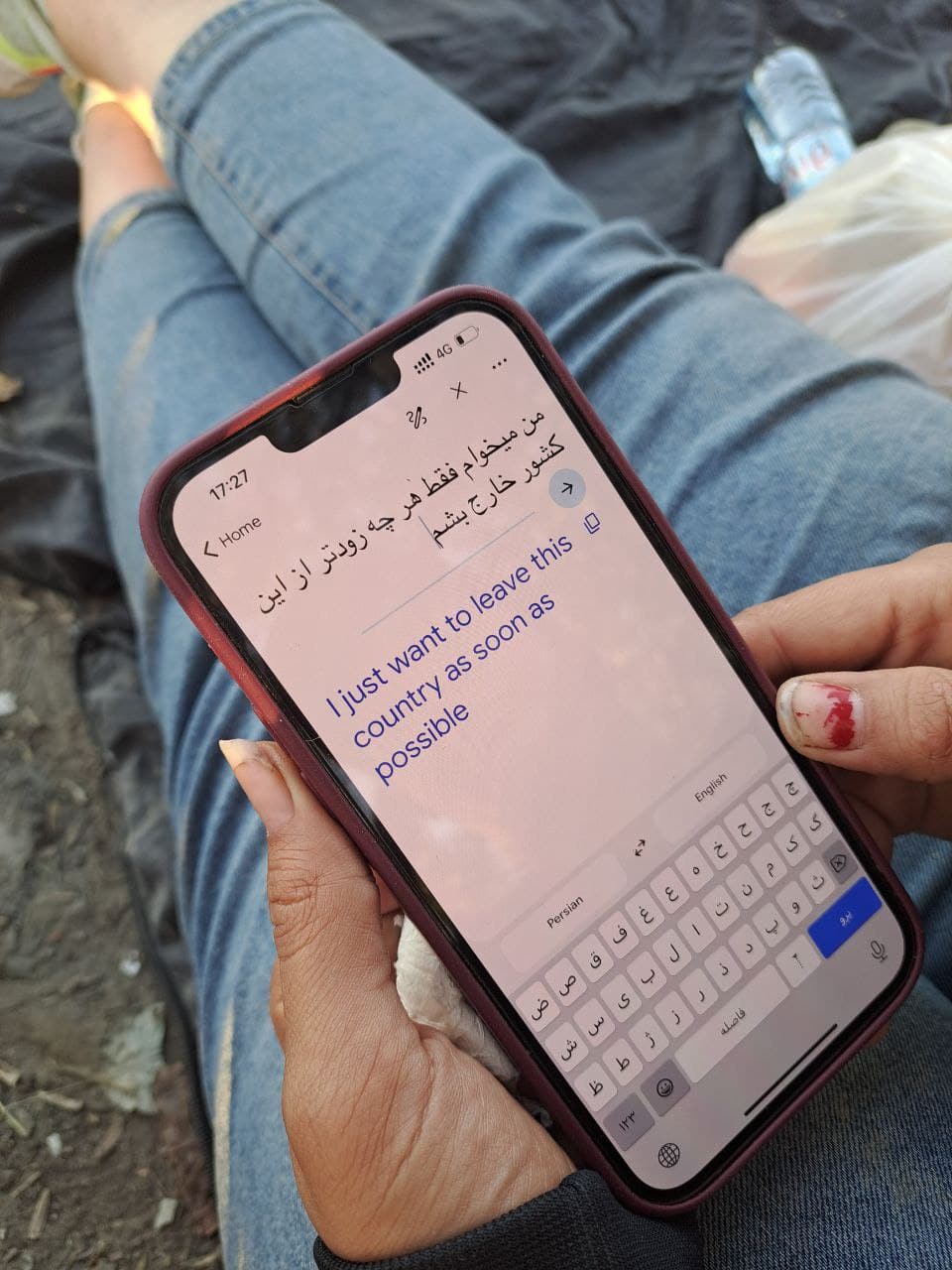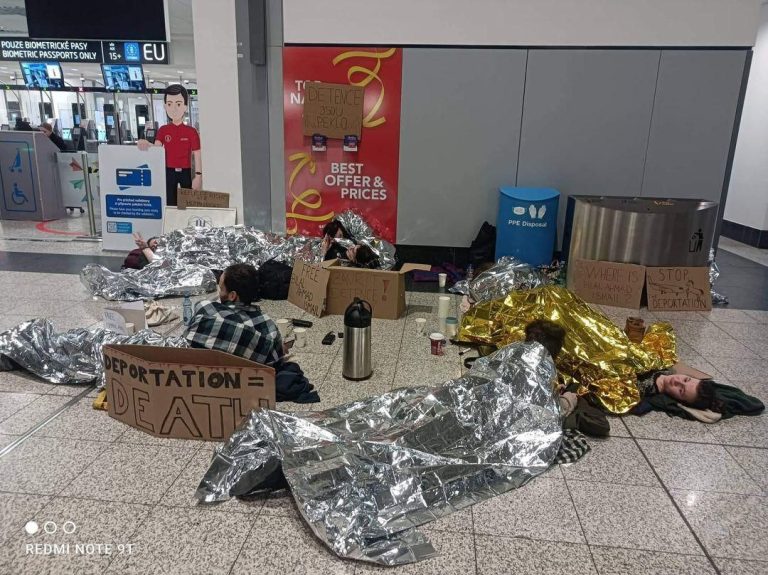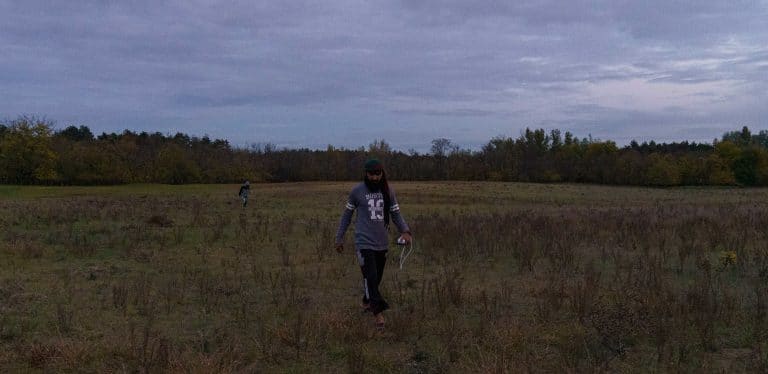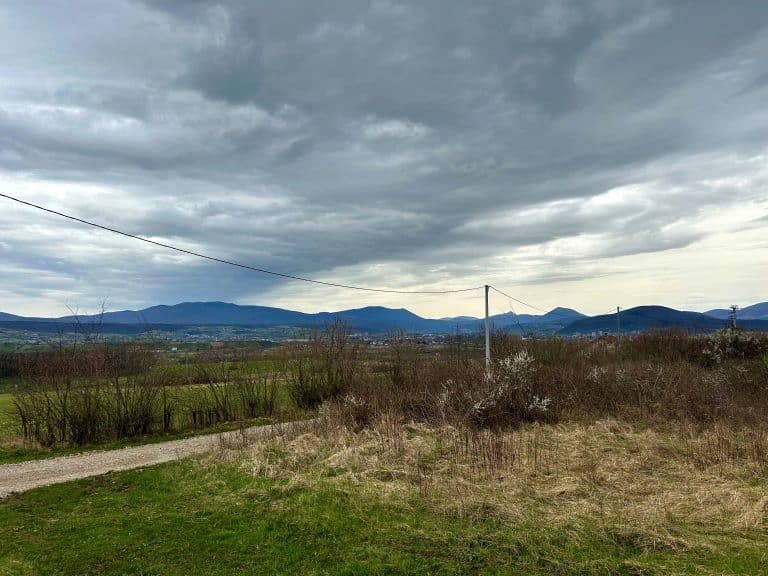By Athenea Olsson and Sara Bermúdez
Everyone migrates in search of something better.
Making the decision to migrate often means previously planning to flee. From armed conflict, from poverty, from governments that limit freedom of expression or from discrimination. There is an endless combination of causes and factors that push people to make the decision to leave their homes. Whatever the reason, they all do so with one common goal in mind, the search for something better.
It was never easy to embark on that journey, and the journey itself or the arrival at the destination are not easy either. Even less so if you are a woman. The migratory context reflects once again the consequences of a system based on unequal relations.
We recently met M. and her daughter in a refugee camp in Subotica. Both left their home in Iran after M.’s ex-partner tried to kill her for not wearing the hijab in the street.
Today we received a call with a bitter message: they have arrived in Germany. Does that mean they will suffer no more? No, unfortunately, not. During our call we hear sobbing on the other end of the phone, M.’s tears express pain. She has something to tell us about her last days in the jungle.
The jungle is the name migrants give to the wooded area where they hide, live and dream until they manage to cross the border. Such a name is not a coincidence: among the dark shelter of these trees hides the wild and the unknown, the dark desires, fears and emotions of many people.



The lack of legal ways to migrate force people into very dangerous situations
M. and her daughter were preparing to cross, as she told us in the phone call. It was about 3 a.m. and they were waiting accompanied by those who had promised them protection.
As a clarification: borders in Europe are difficult to cross and asking for international protection out of a the European Union Country is almost impossible. Sometimes people on the move are forced to cross borders in irregular ways. On the way, they frequently suffer police violence and find themselves in vulnerable situations. People on the move have very different needs. These needs are not covered by the institutions.
Many people explain that they need to pay so they can continue their journey. In these case, some men of an organized group where the ones who assaulted M. However, this is not the most common scenario. If borders were not closed people would have the opportunity to migrate safely and in regular ways and these type of testimonies would be reduced. Sexual violence on migratory routes is just one between of the many consequences of closed borders.
Then, the men became wolves and before the terrified eyes of the little girl, a group of four men raped her mother. M. did not resist because she knew that this guaranteed her daughter’s well-being, in her own words. She surendered to protect.
I keep listening to M.’s testimony with a lump in my throat, there are no words of consolation. That same night they made it — mother and daughter crossed into Hungary. However, there was no time to celebrate because they were stopped by the police. M. tried with all her might, she tried to scream it out, she tried to be heard, she tried to be believed.
“They raped me in front of my daughter”.
It was to no avail. Both were illegally pushed back to the same point in the jungle from which they had set out.
The following days were hell for M. Without being able to shower, without being able to change her clothes, dragging the weight of the violence exercised by those who walk with her every day. Dragging the feeling of guilt and shame that I am trying to get her to let go of. Without being very clear about how and when, one night they made it. They crossed over and made it to a train station, where she bought two tickets to Germany. “Where did you get the strength to go on?” I can’t think of nothing else to ask her.
“From my daughter. I want my daughter to grow up in a place that is safe for women, that is worth all my suffering“. I don’t know if such a place exists, but I know it is in our power to fight for it.
We are still on the phone. “I am very nervous and confused,” she says from her new shelter, where she is still unable to rest. Two Afghan men she met at the train station are temporarily taking them into their home. “Should I trust them?” I don’t know what to answer.
When you are a woman and a migrant, there is no time for relief. Gender roles have consequences within the migration processes. Being a woman and a migrant implies a double discrimination that leads directly to increased vulnerability. The violation of their human rights is aggravated by the intersectionality of violence. Sexual assaults on women on migratory routes are a reality that leads to psychological problems that unnecessarily lengthen the journey towards a better destination. As much as the silence I keep while M. cries on the other end of the phone.
The reason to leave Iran
M. was a kindergarten teacher in Iran. We met outside the refugee camp in Subotica. She now sleeps among the trees surrounding the center because there are not enough beds or space in the facilities. Her 10-year-old daughter D. and her partner are travelling with her.
When she was 15 years old, M. married a man who abused and mistreated her. When she was 19, she became pregnant with D., a ten-year-old girl whom she now holds in her arms. Both of them had to flee Iran when M.’s ex-husband almost beat her to death for not wearing the hijab. As soon as she recovered a bit, M. took what little she could and left with her daughter, leaving behind her home and family, and the man who almost killed her.
Both set out on a journey to what they had heard would be a much safer and more secure future full of possibilities. However, the road to Europe has been filled with violence in all its forms. Since the moment she left home, M. has not only had to carry the weight of backpacks and her own body, she has not only been cold and hungry, but she has also seen her ten-year-old daughter go through the same along with her.


D. is terrified, she doesn’t know who we are. She is hugging her stuffed rabbit while crying and hiding her head in her mother’s arms. Most of the strangers she has crossed her path with so far have had bad intentions. She doesn’t understand anything her mother tells us and only asks her that they please go home, that she doesn’t want to continue sleeping in the street or being cold in the woods.
However, M. looks at us and asks us “which home?”. None of them, nor of the hundreds of people around us want to be here. No one has left their home, their family and their life because they wanted to.
The little girl has witnessed countless assaults by the police on her mother, but also on her partner and the other men in the group they are traveling with. The last time they met the Serbian police, they took away all their luggage and left them with only the clothes on their backs, but not before beating up several of the men. They don’t like this country, they don’t feel welcome and wherever they go they have to hide from the police or anyone who might cause them trouble.
M. has little hope left. In tears of frustration she tells us how the day before she had gone to a supermarket to buy two 50cl bottles of water and the checkout staff blackmailed her: they asked her for ten euros for both bottles, instead of the 200 dinars (less than two euros) they cost.
M. had to agree so that they didn’t call the police. She does not understand why they are subjected to so much aggression and violence when the only thing they wanted to do at the beginning of their journey was to survive.
While M. tells us her story, we try to get a first aid kit so that she can bandage her feet and continue on her way that night, some warm clothes for the little girl, food and basic hygiene products.
They have not changed clothes or showered for twenty days. M. is ashamed to see herself like this. She says that Iran used to be a clean-cut, snooty woman with long, shiny hair that reached her waist.
She had to cut her hair because she knew that the hygienic conditions on the journey ahead were practically non-existent. She shows us the dirty socks she is wearing and her feet and heels, covered with wounds and blisters. It is already getting dark. It is getting colder and the last rays of sunlight are hiding behind the trees surrounding the camp. The atmosphere is getting a little thicker, people are in a hurry and the different groups are preparing for the night. We must leave.
We say goodbye, wish them the best of luck and above all, a lot of strength for the journey ahead. As we walk away, M. checks the bag of bandages and plasters we have given her and D. is still hugging her stuffed rabbit, although she’s no longer crying





